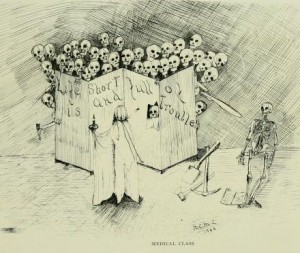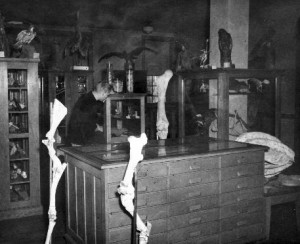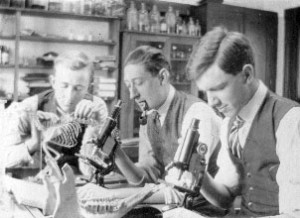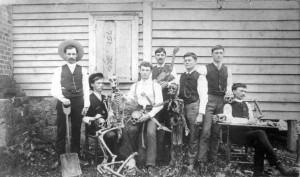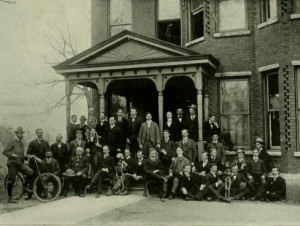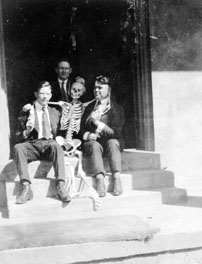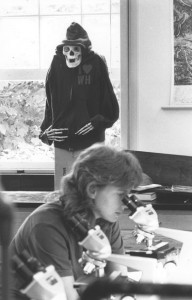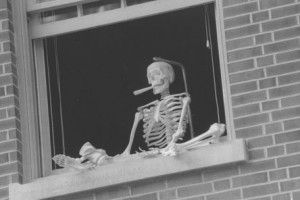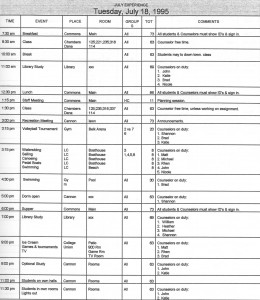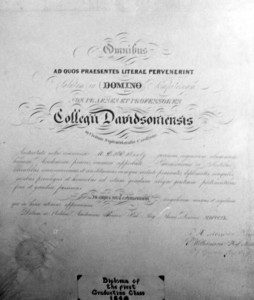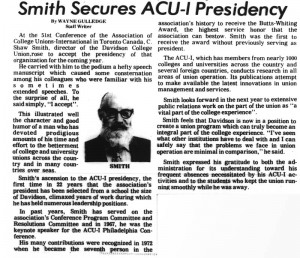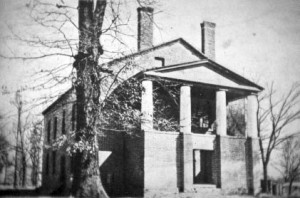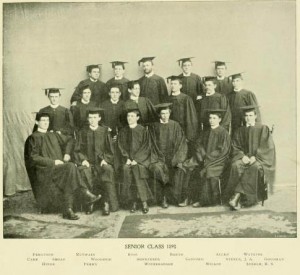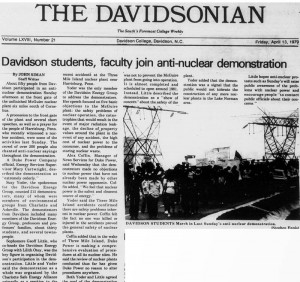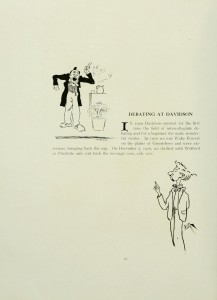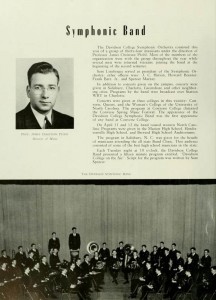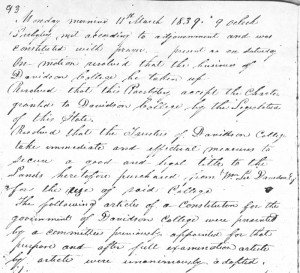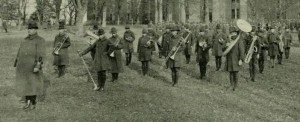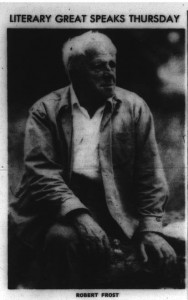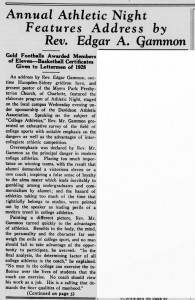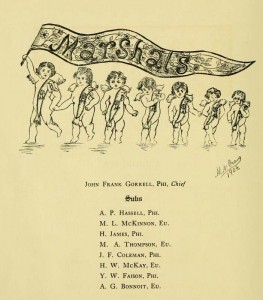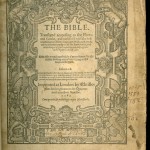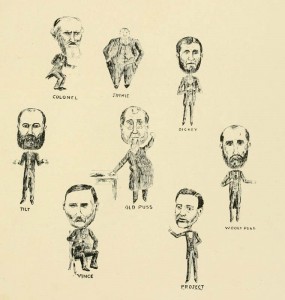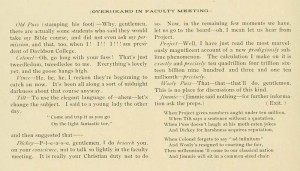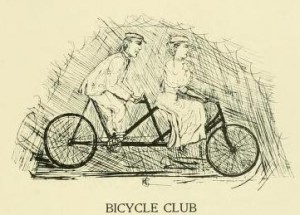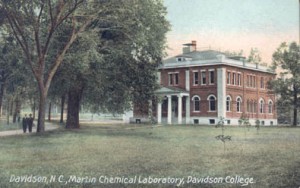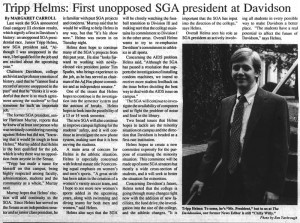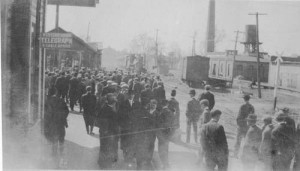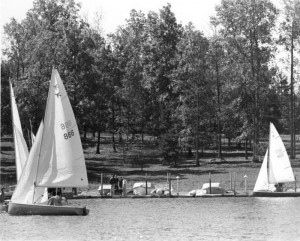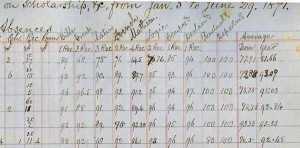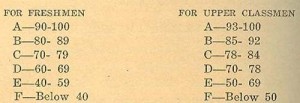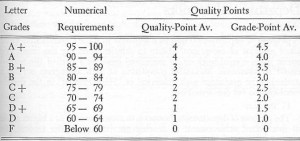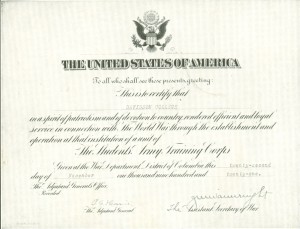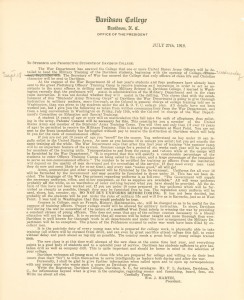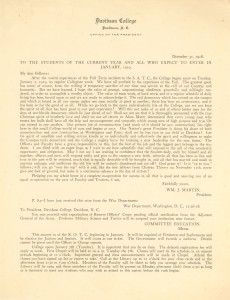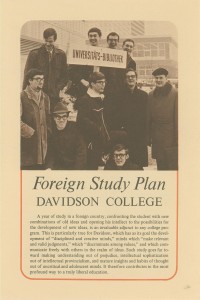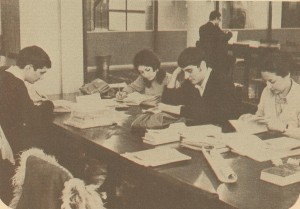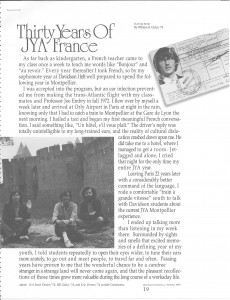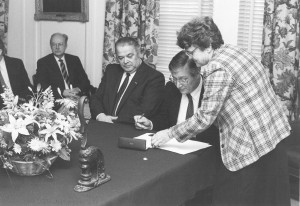We’ve already written about the skeletons in the columns of old Chambers stories but while decorating the Rare Book Room for our annual evening of ghost stories, a question came up about whether the archives has any photographs with skeletons. Turns out we do have a few in our collections –which shouldn’t be surprising since there was once a medical college in Davidson and there have been anatomy and biology courses since the 1880s.
The 1916 photograph comes from the scrapbook of Walter Johnson, class of 1916. While most of the images in his scrapbook are of athletic and social events, he happily included some examples of students studying.* Today’s students might be perplexed by their choice of vests and ties and smoking pipes in the lab.
Other skeleton photos are more playful. Paul Barringer served as the college physician in 1886-87 and then began teaching private classes in anatomy, physiology, and biology to Davidson students. This photograph includes:
William Samuel Moore, class of 1887, became a physician and worked in Blackwell’s Island, New York,
William Joseph Martin, class of 1888, became a chemistry professor and later president of Davidson College,
David Meek Provence, class of 1888, became a phsyician in Ridgeway, SC,
Thomas Neely Reid, class of 1890, became a physician n Matthews, NC,
William Kirkpatrick Reid, class of 1888, became of physician in Charlotte, NC,
Charles Edgar Walker, class of 1890, became a physician in Charlotte, NC, and
Robert Dick Ross, class of 1886, became a physician in Pineville, NC.

1907 North Carolina Medical College diploma. The medical college moved from Davidson to Charlotte in 1907. It closed in 1913.
Barringer left the town of Davidson in 1889 to join the faculty at the University of Virginia. John Peter Munroe, class of 1882, came to Davidson in 1890 to become to the college physician and took over Barringer’s classes. He soon established the North Carolina Medical College. Although separate from Davidson College, students could take classes from both institutions and the Davidson College yearbook, Quips and Cranks, included sections on the medical college.
This photograph comes from the scrapbook of Albert Crossley Wildman, class of 1924. Similar to Walter Johnson’s scrapbook, it is a treasure trove of images and invitations documenting student life at Davidson.** Included is this image of 2 students and a professor with a skeleton. The professor patting the skeleton looks to be John Wilson MacConnell, who taught physiology and hygiene.
The skeleton used in biology now has been named Earl – when not checking out student work in labs, he’s been known to wander about the department and take a few breaks watching campus.
* To see more about Johnson’s scrapbook, go to http://davidsonarchivesandspecialcollections.org/archivesdb/photoquery_wp.asp and put Walter A Johnson in the first box and click Submit (don’t click on Browse unless you want to see a full list of subject headings).
** to see more about Wildman’s scrapbook to go http://davidsonarchivesandspecialcollections.org/archivesdb/msquery_wp.asp and put Wildman in the first box and click on Submit.
Or you come by the archives to see the scrapbooks and those of other students.
